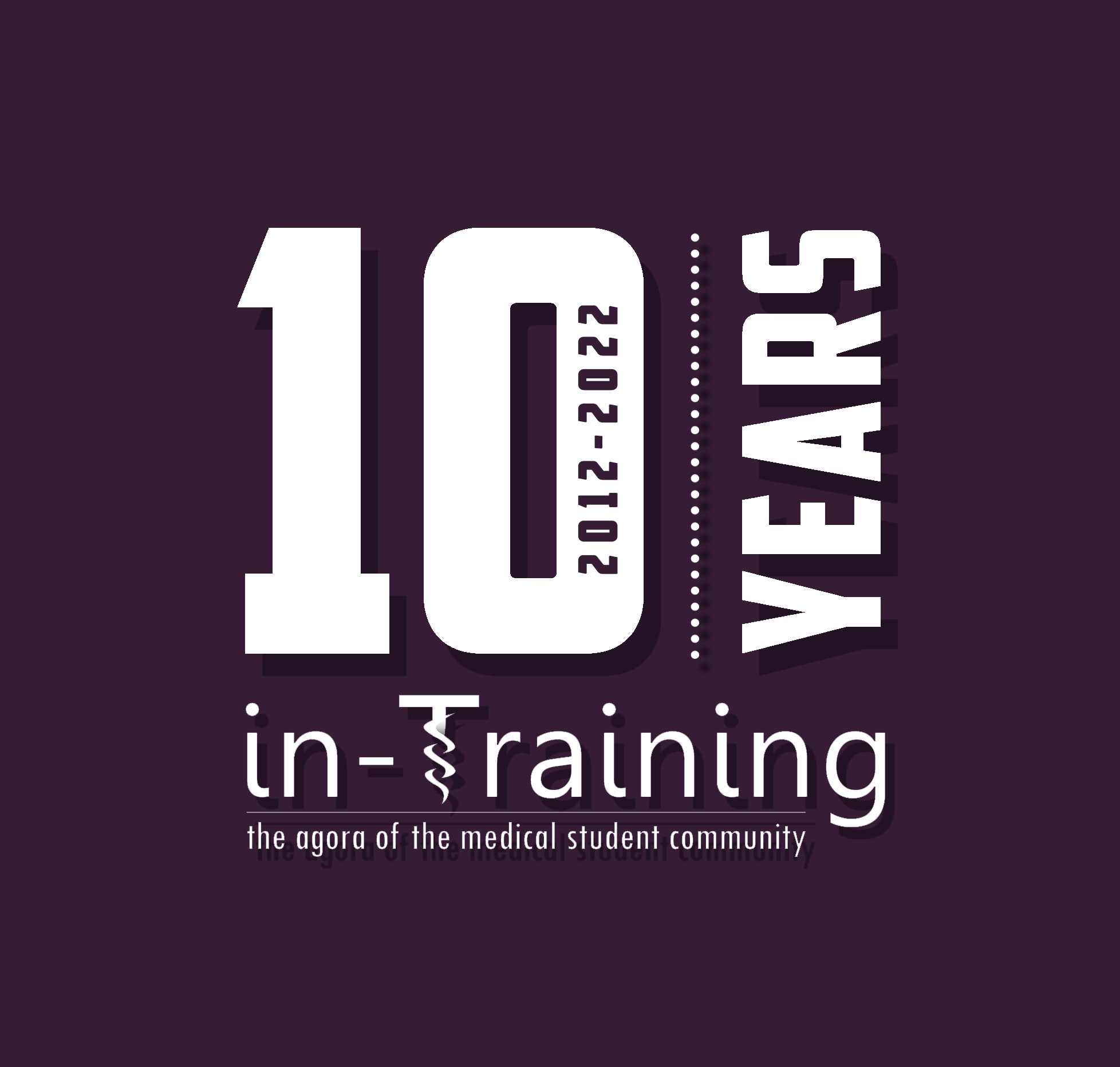This April marked the 10-year anniversary of the founding of in-Training, and we invited all members of the in-Training family to contribute articles and other artistic works to celebrate our first decade as the premier online peer-reviewed publication by and for the medical student community.
Dr. Lisa Moore, MD is a family medicine physician at Venice Family Clinic and contributes this article as one of our first in-Training writers in 2013.
Every day, twenty times a day, I listen to breaths. “Take a deep breath in and out… good… and another…” Mostly clear breaths, sometimes crackly, sometimes wheezy. I place a hand on the person’s shoulder, subtly offering kindness and connection. I enjoy this time to take deep breaths myself. A moment of relative calm in the middle of the too-rushed ceremony of a primary care office visit. But sometimes I hold my breath as I auscultate, hoping to heighten my sense of hearing, wanting to be sure I do not miss any aberrant sounds.
Over the past two-plus years, this idea of listening to breaths has taken on a new weight. As the pandemic began, I think we all became a little more attuned to our own breaths, wondering what was going on inside of our lungs. Had some viral particles managed to make it in through my nasal passages? Would an inflammatory storm soon ensue? Or was I asymptomatically putting my family and patients at risk? Breathe in. Breathe out. As I walked down the sidewalk, people might not respond to my “hello” but rather step aside for fear that somehow that breath would transmit this illness through both our masks. I quickly realized that when I listened to lungs and put my hand on a patient’s shoulder I might be offering the only human touch they had experienced in weeks. The relief that came with hearing “your lungs sound clear” was palpable.
Narrative — reading it or writing it — can serve these two purposes as well. Early on in the pandemic, beautiful, sad, inspiring poems circulated on social media and were posted in the nurse’s station. The first-hand stories of health care workers in New York City broke my heart and made me feel so proud to be among them in some way, even if I didn’t feel like I was really on the front line. I slowed down to read these pieces, to search for some respite, some balm to soothe the pain of a world upturned.
At other times, I read or write as if I were holding my breath, intent on finding some underlying motive or explanation for what I am feeling, wondering how we can possibly make sense of all that has happened over the past few years. It is strange to reflect on the early days of the COVID-19 pandemic, just as it sometimes feels strange to reflect on my days as a medical student 10 years ago, writing about my first experiences on the wards for in-Training. Thankfully, the medical humanities offer a way for us to do this — a way to breathe with each phrase of an essay or poem, and to analyze our own inner workings and hold onto our selves.



